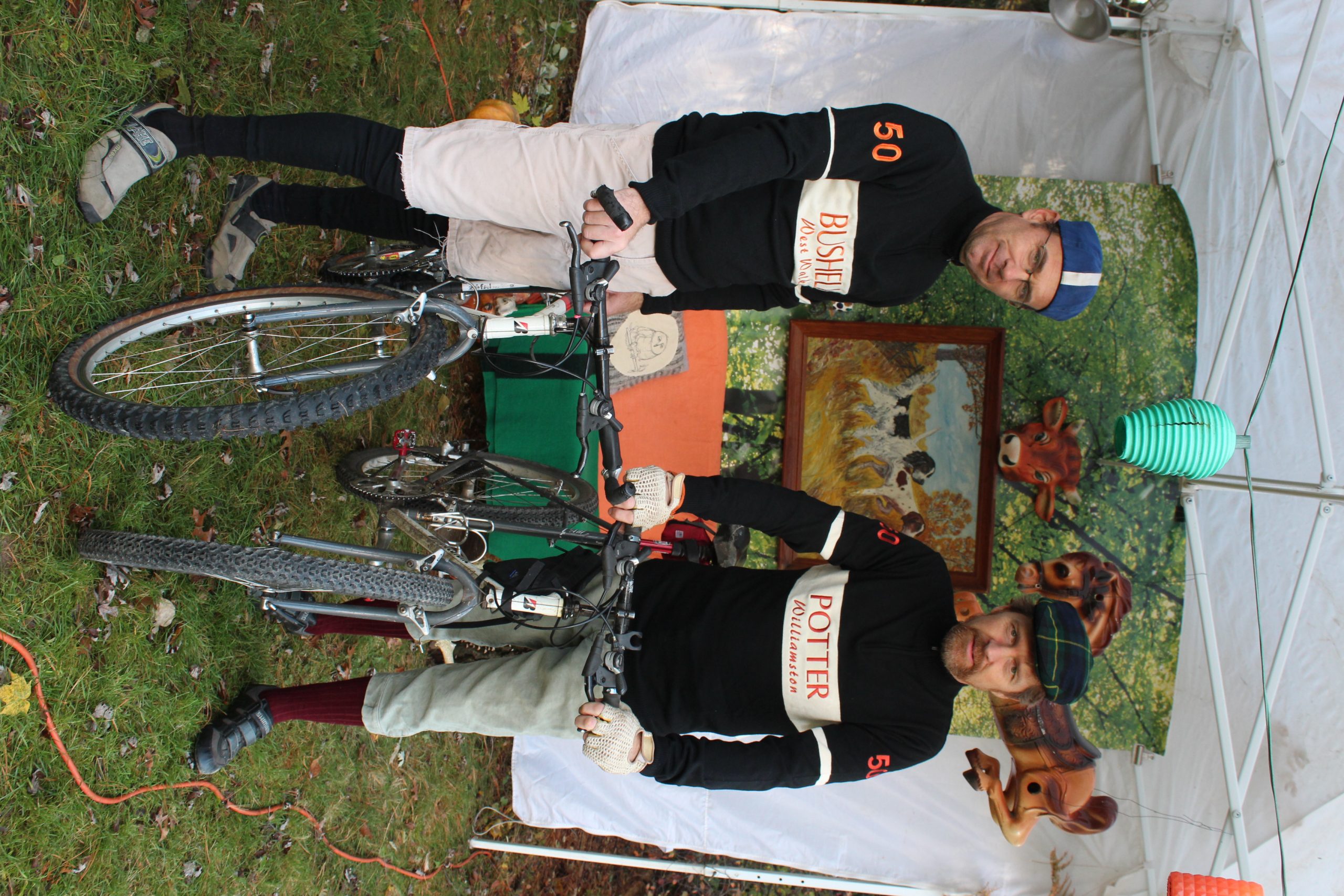In Praise of Forrest
I’ve been reading up on Nathan Bedford Forrest after reading some of Jack Saunders’ mentions of him. What a guy! He’s my biggest Civil War hero so far. Actually, he’s the first guy I’ve even read about but I can’t imagine any being better. I was finally compelled to buy a bio when I saw a 1st ed of the Lytle. It had such wonderful cover artwork and such a great title: “Bedford Forrest and his Critter Company.” But I couldn’t afford that. Maybe I can get a color xerox of the cover someday for framing. Such a simple, elegant piece of sketching. I got the Wyeth bio instead to start with.(Now I’m reading a cheap new printing of the Lytle. I’m really enjoying his verve, even though Lytle seemed to back away from the book in later life. I’m hoping it gets more into the nature of Forrest’s men. They really stood out to me in the Wyeth book even though just about all impressions had to be gathered from between the lines. It really impresses me how they stuck to their man throughout the conflict. Man, what a dry writer Wyeth is—but what life comes out from all sides! We’ll see what Lytle brings…
One thing I noticed near the end of the Wyeth is that after Forrest’s final big retreat one of the consolations was that these stunningly loyal, hero troops would be remembered in poetry and song forever. I’d never even heard of Forrest before now. So much for memory. So much for hardly any decent movies on the whole topic of the Civil War. None really seem very honest. Each seems to have a big ax that it grinds along. Forrest’s career reminded me of ‘From Here to Eternity.’ Man, he had to deal with the cutworms his whole life. He sure did it with style, too.
*****
I’ve been reading some Civil war history. It seems pretty much like the Confederates lost the war because they wanted to snub this one super general—Nathan Bedford Forrest—who never lost anything and whose men loved him—just because he wasn’t one of the boys who went to fancy school. He did things his way. We’ll show him! Man, that guy was something. Leaders have learned from him ever since, while they forgot the guys (Bragg) who wrecked his career. But maybe he was kind of singular, you can’t train people to repeat that kind of energy level. However, his officers seemed to imitate him just fine. He made sure that all the men and horses were taken care of and fed, so that he could ask them to do superhuman things when he needed them. He got after anyone who had their saddle tied on wrong, so it was chafing the horse. He made sure that they came back from every mission better off than when they started (even if they were fewer in number, but he recruited all the time, too). Several times he was forced to start big missions without men or equipment. He got both his men and his supplies from behind the lines. He’d have charges where half the men were unarmed to get the Yankees, scaring em off with pots and pans to get their stuff. He never risked his men or anything needlessly. Never threw them away, like so many others did. Every move was worth doing, dying for. He was great with info-gathering. And with the beau geste. He led every charge and battle on the front lines, in person. He was into stylepoints and treated any nice-guy prisoner very well, especially if they fought really well against him. He usually released them ‘on parole’ after they got out of the sphere of danger because he was always moving so fast. He verified all his decisions with his own eyes, refused binocs. He took full responsibility and did many info missions himself behind the lines. He listened to any good idea. He apologized to lowly troopers if he goofed up as quickly as he’d whip them with a stick if they were shirking. Top guy Bragg made sure that all his ideas were refused and delayed; he took Forrest’s self-built armies twice and tried a 3rd time, but Forrest told him to never try to interact with him again or he’d kill him. Totally chivalrous style. He’s considered the last of the oldtime warriors, where as a general he still killed 30 enemy with his own hands. Had 29 horses shot out under him. His bio is a great read about a folk genius. The fancy dans made sure his reputation even to this day is somewhat tarnished. Of course he was a bit of a hothead.
Well, I guess one kind of needs to master a certain amount of diplomacy needed for whatever scene one is in. The only mortal downside is when it’s required that you LIE to get ahead.
****
[Here’s another little summary of the Wyeth Forrest Bio.]
You have to use your brain diversely or you’ll lose it. Isn’t that the main rule behind any kind of decline? Not doing anything OR staying in a rut: both are bad ideas.
I just read the COOLEST biography of a Confederate General. I’d never read one before, but I know about quite a few of the Civil War characters. This guy was something else, though, and was just extremely inspiring. Nathan Bedford Forrest. I never knew that he was really considered the most charismatic of the Civil War heroes as well as the most dangerous officer. The North was VERY worried about him the whole time and he almost whupped them singlehandedly about 5 times. But he was almost illiterate and never went to any academy so that the Confederates kept putting him down even though he had ALL wins. They just kept using him and thinking they knew better. They were jealous but he did his job anyway. His men were so loyal it was amazing. He got them from nowhere, too. Several times he was given orders to just go get an army and he did it. Then he supplied his men by beating the Feds and taking their stuff. (He would psych his new recruits to attack when only half of them had shotguns and the others had pots and pans. They would trust him when he said it would work, and it did. They’d charge and win and grab the enemy guns.) His boss’s took his armies and captured cannons away from him 3 times and made him go get new ones. Finally he had enough and rode straight to the biggest commander’s tent—Bragg—and told him that if he ever did anything to him again he’d kill him and that if Bragg was half a man he’d duel him right then but he wasn’t worth it and to just stay away. He killed 30 men hand to hand, led every charge at the front, had 30 horses shot out from under him and invented guerilla warfare. He had a fierce temper but also apologized very quickly and seemed to listen to privates as much as officers. He never drank and was religious and gave his fortune away to his injured/dead men’s family after the war. His brothers and son fought with him, too. He made sure that all the horses were taken care of and the men well fed and when retreating always made sure to bring along herds of pigs and cows along the way. He had a huge attention to every detail and would watch that his men had their horses saddled right as they rode by so the horses wouldn’t get sore. He always made 100 miles to the Fed’s 10. This book was written very dryly by a surgeon but it’s amazing the life that comes out from between the facts. His officers tried to imitate him and did pretty good. But it’s hard to imagine his method as being very repeatable. If you read this book, it will get your brain working!
***
So now I’m reading the Lytle bio of Forrest. I was hoping it had more in it about Forrest’s loyal men, but I haven’t gotten that far in. I really like his wide-ranging Intro, how he ties his subject in with history and economics. But I also noticed in his new Preface where he starts out by saying that it was a young man’s book. I was wondering what he meant by that, and was looking forward to it being rough and ready. Which it is, but in the good sense, I think, so why apologize?
I also bought the Brian Wills Forrest bio. He’s considered the best. Dry yet bloodless, so far. Wyeth was dry but inspired. Anyway, in Wills’ Intro he sums up other work. He dismisses Lytle’s book. Just laughs it away and says that Lytle did a diservice to Western Civ, the South, feudalism, all at once. No defense of his own position, no acknowledging that the others had at least a grain of truth in their view. No, let’s just laugh at the politically incorrect view. Complexity by the board. Maybe that’s why Wills is considered best? Because he’s most cynical?
Then I realized that “it’s a young man’s book” is back-pedaling for what might be perceived as a supposed support of racism. And that Wills’ easy, light dismissing of Lytle is due to the supposed “shooting fish in a kettle” factor. Hey, Lytle says the South had something to offer, he’s a joke, let’s laugh. THERE’S NOT EVEN ANY NEED TO DEFEND YOUR CRITICISM ANYMORE. When Lytle says that Forrest was a great man of Western Civ *AND* that the South was great, you get to laugh. There’s no obligation to discuss anything. No one will question you, either, and Lytle will have to write in a new Intro that it was a young man’s book.
I was fascinated by how Lytle never mentioned racism, but instead used the term feudalism throughout his Intro. It was interesting how he discriminated between cotton snobs and pioneering types. And said that it was the pioneering spirit which was transgressed in the South by the invading North and which motivated the people to rise up under such amazing citizen leaders. Lytle explains how the slavery issue was just a hook to hang the war on for the North. Is it that laughable?
I wonder if it would’ve gone better if a caste system had been our case, instead of slavery. Slavery became outmoded with industrialism, and we were the last to give it up as far as I know, but castes have seemingly survived in most parts of the world. Forrest himself seems to have repeatedly said that the blacks were our “only laboring class,” and needed protection as such. He never said they weren’t human. It’s interesting how in Wills’ book that “racism” seems like a foreign term applied from without. No one else says it but the biographer. That stands out. Now, perhaps Forrest was misguided. Who isn’t. But to dismiss what Lytle says about feudalism without another word, well, maybe I’m just not educated. I don’t see how it’s so laughable.
I was also struck by what Lytle wrote about how the self-sufficient, cultural South was mainly resisting the attack of reductionist Northern *consumerism*. –That the South supported the constitutional concept of Union between different, tolerant adults, rather than as a cover for Federalist business-interest tyranny. Lytle suggests that the North looked for years for a difference that would prove intolerant, so that it could destroy the Union. It’s interesting to read his relatively dated ‘new’ Intro and see quite an argument for true diversity and a different view of Union. It’s still pretty radical for today’s views. Maybe it’s just more rash young talk? Well, it’s all a big topic, as far as I’m concerned. I recall reading The Federalist Papers. I didn’t know the discussion could ever be considered over.




